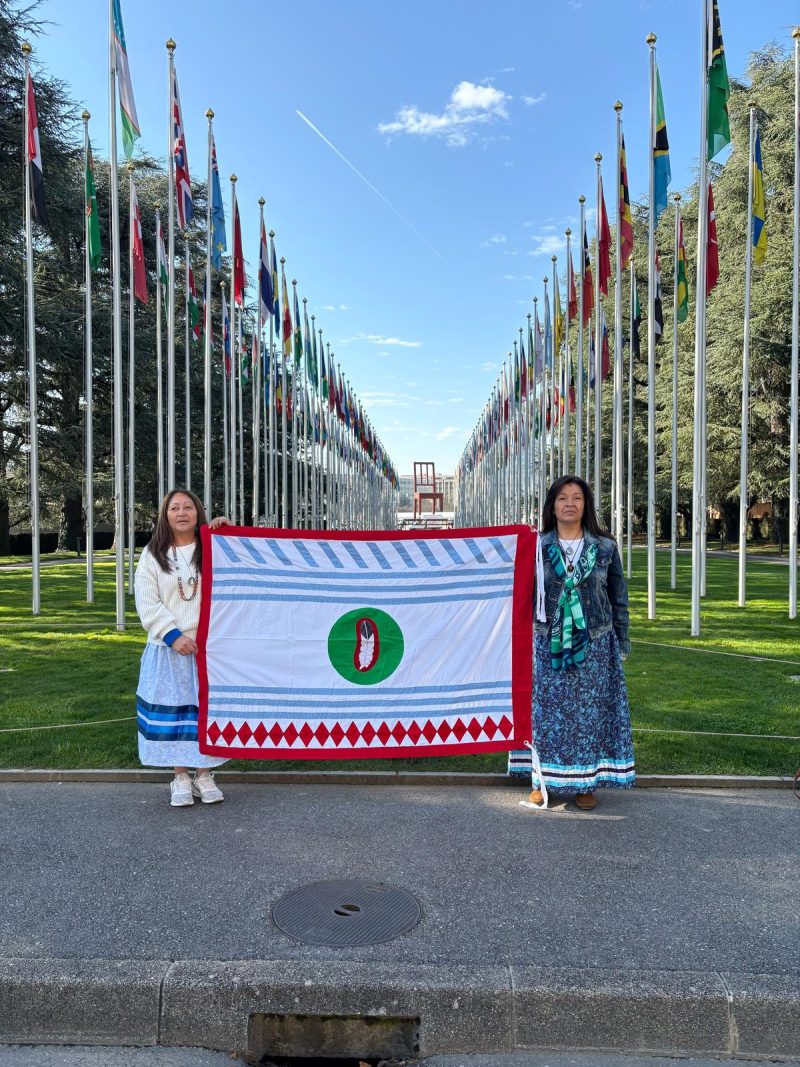
In 1973, the US government sued Carrie and Mary Dann, Western Shoshone sisters from Crescent Valley, NV, for not paying grazing fees on “public land,” recognized as their territory under the 1863 Treaty of Ruby Valley. The sisters faced a lengthy legal battle for sovereignty in federal courts but received an unfavorable decision. They then escalated the case to the United Nations with support from the Western Shoshone Defense Project (WSDP), created in 1991 to address this issue. In 2002, the Inter-American Commission on Human Rights ruled that the US violated the Western Shoshone’s property and due process rights. Today, WSDP advocates for Indigenous rights through community engagement and legal actions, including a lawsuit against the federal government opposing a lithium mine project due to environmental concerns. Through these efforts, WSDP affirms Newe (Western Shoshone) authority over Newe Sogobia (the people’s earth mother) to protect future generations.

Members of the Western Shoshone Defense Project in an international Indigenous meeting in Chile. Photo: Western Shoshone Defense Project
The Western Shoshone Defense Project comprises a small team of five board members and one staff member from various communities. They advocate for treaty rights in Nevada, emphasizing their unceded ancestral lands. WSDP collaborates with groups like the Center for Biological Diversity and Great Basin Resource Watch to litigate against projects threatening their land, like the Rhyolite Ridge lithium mine. They also partner with the Noowuh Knowledge Center on educational initiatives, including an annual treaty conference to raise awareness about community issues. By engaging with tribal councils and communities, they inform members about legal advocacy efforts aimed at securing a role in decision-making processes that affect their lands. A key achievement was a 2006 UN decision calling on the US to stop harming their lands, which has set a precedent for Indigenous groups worldwide and demonstrated that grassroots activism can lead to global recognition of Indigenous rights.

The Western Shoshone Defense Project opposes mining projects that threaten their lands, such as the Rhyolite Ridge Project in Nevada. Photo: Western Shoshone Defense Project